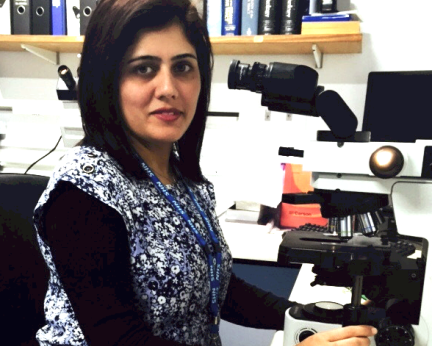When I started as a foundation doctor, I knew very little about the specialty of histopathology. I came across it during a cancer multidisciplinary team meeting with surgeons, physicians, radiologists, pathologists and a cancer nurse specialist, and was fascinated by the tremendous impact these tiny tissue sections on a piece of glass have on the diagnosis and treatment of patients. I undertook a taster day in histopathology and it sparked my interest because of its problem-solving nature.
To explore it further, I decided to do a foundation 2 (F2) rotation in histopathology. I liked the variety of the work, which includes: analysing tissues - biopsies, fluids and resections - under the microscope; ‘cut-up’ of tissues in the laboratory (the examination and dissection of surgical resection specimens to select the most appropriate samples for microscope slides); and some detective work involving post-mortems.





